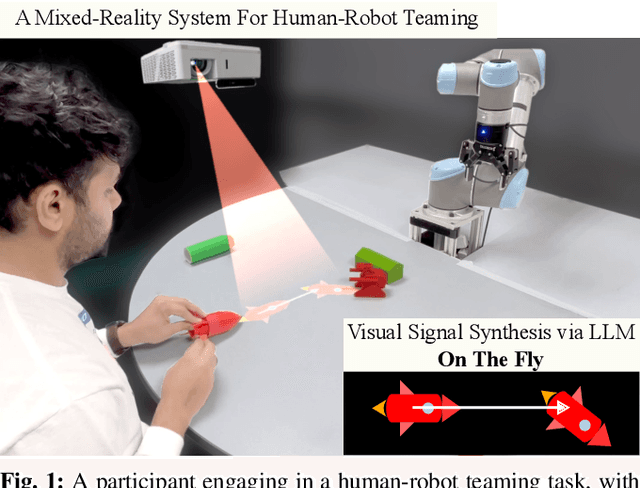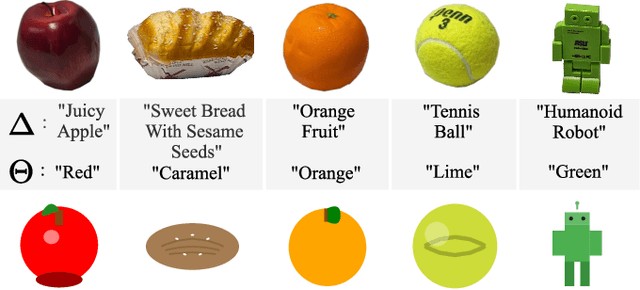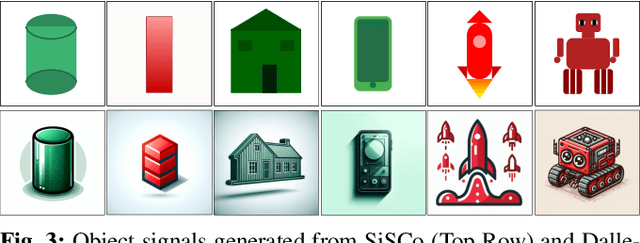Fabian Weigend
SiSCo: Signal Synthesis for Effective Human-Robot Communication Via Large Language Models
Sep 20, 2024



Abstract:Effective human-robot collaboration hinges on robust communication channels, with visual signaling playing a pivotal role due to its intuitive appeal. Yet, the creation of visually intuitive cues often demands extensive resources and specialized knowledge. The emergence of Large Language Models (LLMs) offers promising avenues for enhancing human-robot interactions and revolutionizing the way we generate context-aware visual cues. To this end, we introduce SiSCo--a novel framework that combines the computational power of LLMs with mixed-reality technologies to streamline the creation of visual cues for human-robot collaboration. Our results show that SiSCo improves the efficiency of communication in human-robot teaming tasks, reducing task completion time by approximately 73% and increasing task success rates by 18% compared to baseline natural language signals. Additionally, SiSCo reduces cognitive load for participants by 46%, as measured by the NASA-TLX subscale, and receives above-average user ratings for on-the-fly signals generated for unseen objects. To encourage further development and broader community engagement, we provide full access to SiSCo's implementation and related materials on our GitHub repository.
Enabling Stateful Behaviors for Diffusion-based Policy Learning
Apr 18, 2024



Abstract:While imitation learning provides a simple and effective framework for policy learning, acquiring consistent actions during robot execution remains a challenging task. Existing approaches primarily focus on either modifying the action representation at data curation stage or altering the model itself, both of which do not fully address the scalability of consistent action generation. To overcome this limitation, we introduce the Diff-Control policy, which utilizes a diffusion-based model to learn the action representation from a state-space modeling viewpoint. We demonstrate that we can reduce diffusion-based policies' uncertainty by making it stateful through a Bayesian formulation facilitated by ControlNet, leading to improved robustness and success rates. Our experimental results demonstrate the significance of incorporating action statefulness in policy learning, where Diff-Control shows improved performance across various tasks. Specifically, Diff-Control achieves an average success rate of 72% and 84% on stateful and dynamic tasks, respectively. Project page: https://github.com/ir-lab/Diff-Control
 Add to Chrome
Add to Chrome Add to Firefox
Add to Firefox Add to Edge
Add to Edge